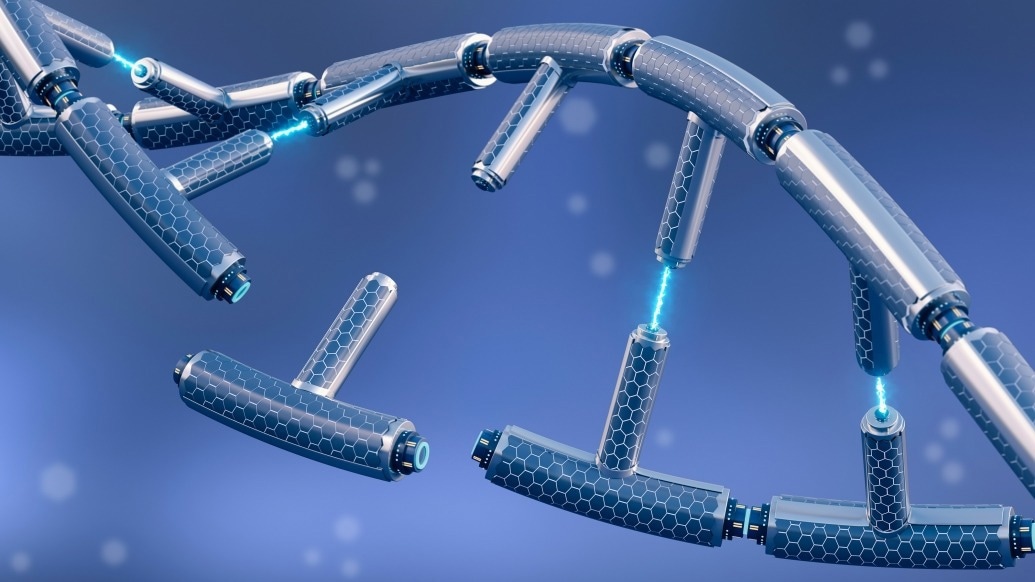Reviewed by Danielle Ellis, B.Sc.Nov 3 2023
Scientists have unraveled the mechanism by which a particular metabolite regulates DNA repair activity and the susceptibility of tissues to cancer treatment.

Image Credit: Getty Images
Nucleotides, essential components of DNA, can influence the susceptibility or resilience of brain cancer to chemotherapy and radiation treatments.
Research conducted by the University of Michigan Health Rogel Cancer Center, as reported in Cancer Discovery, sheds light on the unexpected role played by a particular nucleotide metabolite, known as GTP, in modulating responses to radiation and chemotherapy.
We learned that if you increase a cell’s GTP levels, it makes it really resistant to radiation or chemotherapy. Lowering GTP levels, the cell becomes much more sensitive.”
Daniel Wahl, Study Senior Author and Associate Professor, Radiation Oncology, University of Michigan
For quite some time, scientists have been aware that the quantities of nucleotides, such as GTP, dictate the pace at which DNA damage is mended, subsequently influencing treatment sensitivity.
Formerly, researchers believed that this connection existed solely because nucleotides serve as the foundational components of DNA. However, these revelations unveil a completely novel mechanism through which nucleotides regulate DNA repair.
GTP impacts resistance or sensitivity to treatment not just because it’s a building block of DNA, as we previously thought.”
Daniel Wahl, Study Senior Author and Associate Professor, Radiation Oncology, University of Michigan
Wahl added, “Instead of only affecting the physical structure of the DNA, it also acts as a signaler. The levels of GTP turn on a signaling pathway and give cells instructions to repair damaged DNA.”
Furthermore, Wahl and his collaborator, Dr Weihua Zhou, discovered that this holds true not only for cancer cells but also for normal tissue.
“It’s a generalizable finding,” stated Zhou, Research Assistant Professor of radiation oncology and first author of the study.
Zhou added, “In the future, we’d like to develop therapeutics that leverage the relationship between GTP and DNA damage response, both to make cancer cells more sensitive to chemotherapy and radiation and also to boost GTP levels to protect normal tissue from damage.”
Wahl and his research team are currently conducting a clinical trial for brain cancer patients, with a primary focus on the impact of GTP on treatment outcomes. Wahl states that these findings represent a significant biological breakthrough with direct implications for the ongoing trial and possible future trials.
“We knew that depleting GTP might make brain cancers respond better to chemotherapy and radiation. Now these findings show why that’s happening,” stated Wahl.
The revelation that GTP functions as a signaling molecule provides insight into the biological foundations of why investigating GTP is a valuable endeavor. This understanding may assist researchers in identifying the patients who stand to gain the most from GTP modulators in the clinical trial.
When the signaling pathway is active, the cancer is resistant to radiation and chemotherapy. These findings might help us select the right patients for the next line of clinical trials.”
Daniel Wahl, Study Senior Author and Associate Professor, Radiation Oncology, University of Michigan
Source:
Journal reference:
Zhou, W., et al. (2023) GTP signaling links metabolism, DNA repair, and responses to genotoxic stress. Cancer Discovery. doi.org/10.1158/2159-8290.CD-23-0437